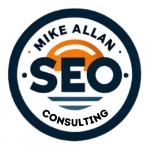
Link building has long been heralded as a cornerstone of any robust SEO strategy. Legions of “link-builders” ply their trade on LinkedIn and via email. With this much enthusiasm for the practice, as an SEO Coach, I should embrace it to help my clients.
But what if I told you that my approach to SEO success doesn’t include link-building? Yes, you read that right. While the industry heavily emphasizes gaining backlinks, my SEO practice thrives without them. It has been over a dozen years since I actively built a link for a client. Mostly due to my client base being household brands. But for the non-household brands, I still didn’t build links.
Here’s why.
The Shortcomings of Traditional Link Building
1. Time-Consuming
Effective link-building is not a quick process. It involves creating compelling content, researching prospective sites, and contacting website owners. This time could be spent on other equally important aspects of SEO that bring more immediate results.
2. Quality Over Quantity
The ‘more is better’ mindset doesn’t always apply to link building. Poor-quality links can damage your site’s credibility and potentially lead to penalties from search engines.
3. Financial Costs
Whether you’re purchasing links (not recommended as it goes against Google guidelines!) or investing in creating stellar content to attract them, link building often requires a financial outlay that doesn’t guarantee ROI.
My Alternative Approach to SEO
On-Page SEO
-
- Keyword Optimization: By strategically placing relevant keywords in titles, meta descriptions, and content, I ensure that the site speaks the search engine’s language.
-
- High-Quality Content: Content is king. I focus on creating valuable, shareable content that serves the audience’s needs. High-quality content naturally garners organic backlinks over time.
Technical SEO
-
- Schema Markup: I utilize advanced schema types to give search engines clearer context about a page’s content. This often results in rich snippets, which can improve click-through rates.
-
- Site Structure: An optimized site structure benefits search engines and users. By employing a logical hierarchy, clean URLs, and a sitemap, I make it easier for search engines to crawl the site and for users to find the information they need.
User Experience (UX)
-
- Navigation: A well-designed, intuitive site encourages visitors to stay longer, reducing the bounce rate—a metric search engines consider when ranking sites.
-
- Page Speed: Faster-loading pages improve user experience and boost search engine rankings.
E-A-T Principles
Before diving into the specifics, let’s briefly define E-A-T, which stands for Expertise, Authority, and Trustworthiness. These are criteria Google uses to assess the quality of web pages. E-A-T is becoming increasingly important in SEO, as search engines aim to provide users with the most reliable and relevant information.
- Expertise: All content created focuses on establishing the site’s expertise in its field.
- Authority: I aim to make the site authoritative by publishing in-depth, well-researched articles.
- Trust: Trust factors like SSL certificates, privacy policies, and transparent business information are always implemented.
By adhering to these principles, the goal is to ensure that the website ranks well in search engine results and provides real value to its visitors.
The Power of a Holistic Approach
Providing genuine value to your audience through high-quality content, technical excellence, and a superb user experience will improve your site’s rankings. Over time, this holistic approach to SEO can earn you organic backlinks, thus achieving the same goal that link-building aims to accomplish—but without the associated risks and costs.
Wrapping it up
While link building has merits, it’s not the end-all-be-all of SEO. My practice shows that a comprehensive, user-focused SEO strategy that meets the searchers’ query with relevant information can match and often exceed the results gained from traditional link-building tactics.
After all, SEO is not just about pleasing search engines; it’s about providing real value to real people. And that’s precisely what my alternative approach aims to do.
Would you like to learn more about this approach to SEO? Feel free to reach out or drop a comment below!

